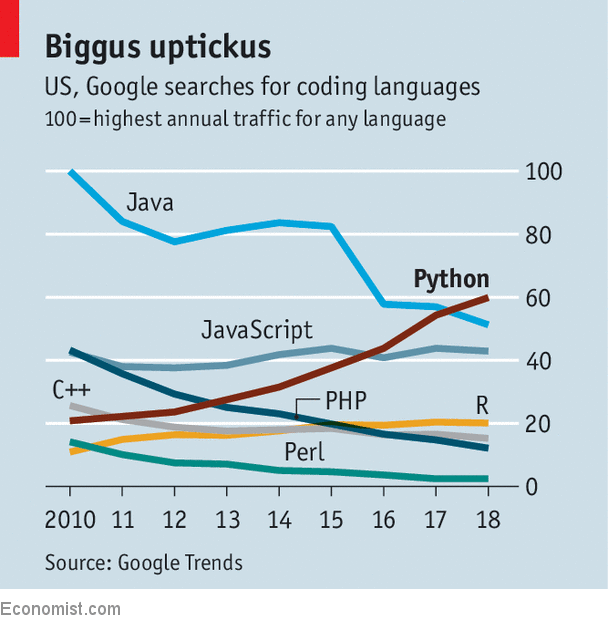Communications of the ACM
Python has Brought Computer Programming to a Vast New Audience

Python creator Guido van Rossum recently resigned as the programming language's "Benevolent Dictator for Life."
Credit: Satoshi Kambayashi
In December 1989 Guido van Rossum, a Dutch computer scientist, set himself a Christmas project. Irked by shortcomings in other programming languages, he wanted to build his own. His principles were simple. First, it should be easy to read. Rather than sprawling over line-endings and being broken up by a tangle of curly braces, each chunk would be surrounded with indented white space. Second, it should let users create their own packages of special-purpose coding modules, which could then be made available to others to form the basis of new programs. Third, he wanted a "short, unique and slightly mysterious" name. He therefore called it after Monty Python, a British comedy group. The package repository became known as the Cheese Shop.
Nearly 30 years after his Christmas invention, Van Rossum resembles a technological version of the Monty Python character who accidentally became the Messiah in the film "Life of Brian". "I certainly didn't set out to create a language that was intended for mass consumption," he explains. But in the past 12 months Google users in America have searched for Python more often than for Kim Kardashian, a reality-TV star. The rate of queries has trebled since 2010, while inquiries after other programming languages have been flat or declining (see chart).
The language's popularity has grown not merely among professional developers—nearly 40% of whom use it, with a further 25% wishing to do so, according to Stack Overflow, a programming forum—but also with ordinary folk. Codecademy, a website that has taught 45m novices how to use various languages, says that by far the biggest increase in demand is from those wishing to learn Python. It is thus bringing coding to the fingertips of those once baffled by the subject. Pythonistas, as aficionados are known, have helped by adding more than 145,000 packages to the Cheese Shop, covering everything from astronomy to game development.

Van Rossum, though delighted by this enthusiasm for his software, has come to find the rigors of supervising it, in his role as "benevolent dictator for life," unbearable. He fears he has become something of an idol. "I'm uncomfortable with that fame," he says, sounding uncannily like Brian trying to drive away the crowds of disciples. "Sometimes I feel like everything I say or do is seen as a very powerful force." On July 12th he resigned, leaving the Pythonistas to manage themselves.
From The Economist
View Full Article
No entries found